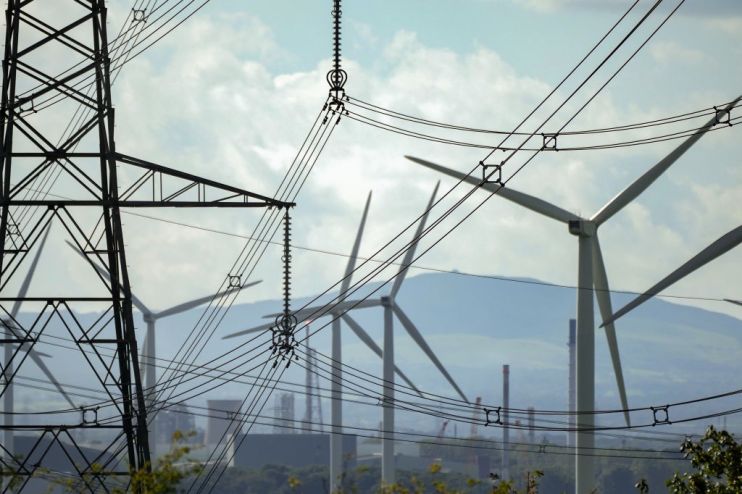Gas prices slide to five-month lows as supply fears ease

Gas prices have dropped below €100 per megawatt-hour for the first time since June.
UK and European benchmarks have slipped 11.8 per cent and 14.2 per cent respectively, weighed down by encouraging developments across the continent.
Demand has eased with milder than expected winter weather, while a flurry of liquefied natural gas cargoes arriving at ports across the continent has eased concerns about supply shortages this winter.
UK prices have dipped to £1.77 per therm today, while Dutch prices have fallen to €97.70 per megawatt-hour.
Temperatures across the UK are expected to peaked at 21 degrees over the coming days, even as darkness looms with the clocks set to go back this coming weekend.
Nathan Piper, head of oil and gas research at Investec told City A.M.: “Mild windy weather continues to put downward pressure on UK gas prices. We anticipate this could continue until the UK experiences more seasonably normal cold winter weather and gas demand for heating increases.”
Europe scrambles to secure supplies
Prices across the continent have fallen sharply from record highs in August, after gas prices spiked to a record €340 per megawatt hour after Russian switched off the Nord Stream pipeline, which has since been sabotaged.
However, the European Union (EU) has managed to top up storage to over 90 per cent of capacity ahead of winter, according to the latest data from ASGI+.
Nevertheless, prices remain historically elevated and are still trading around three times higher than the normal price for this time of year.
The EU is hoping to further drive down costs with cap on gas prices, to both tame markets and slash Russian war revenues.

The bloc also wants to take steps to avoid extreme price spikes and use its joint purchasing power in negotiations with sellers.
The EU’s energy ministers will meet this week to try and hash out the details, with traders keen to see more details about the design of a potential price cap.
So far, the bloc has failed to deliver a firm agreement on a gas price cap between all member states.
But it has managed to divorce itself from Russian gas flows, which now only account for about 9 per cent of EU supply, down from 40 per cent last year.
Don’t expect energy bills to ease
The increased supply security and drop in spot prices is unlikely to ease Brits’ energy bills.
Spot prices may reflect current market conditions, but the price cap is instead dictated by season ahead contracts and futures markets, which remain historically elevated amid fears of long-term supply shortages.
Contracts for UK gas in December and January are still trading at £3.35 per therm and £3.69 per therm respectively.
For context, prices for gas two years ago were 41p per therm during the same period of winter, and £2.35 in December 2021 at an earlier stage of the crisis.
The West has become increasingly dependent on costly liquefied natural gas from the US and Gulf states to meet its energy needs.
This will keep prices high, while there are also concerns over the lack of re-gasification capacity for LNG.

Andy Mayer, energy analyst at the Institute of Economic Affairs warned against complacency despite lower spot prices.
He said: “While welcome, we should not get over-excited over a 30 per cent fall in gas prices this month. They’re still 4-5 times higher than ‘normal times’ and securing gas for winter 2023/24 remains challenging.
“The cause is also more fortune than wise planning, prompted by unseasonable warmth and high winds in Europe. It is though extremely good news for the next Prime Minister. It suppresses both the cost of Truss’s un-targeted subsidy schemes, and windfall payments to wind farms linked to the gas price.”
Looking ahead, Cornwall Insight has warned that prices are likely to remain elevated above pre-crisis levels until the end of the decade.
It has also predicted the energy price cap will rise to over £4,000 per year in April, as has rival forecaster Auxilione.
The cap has become relevant once again following new Chancellor Jeremy Hunt’s decision to reduce the timeframe of the support package – meaning as it stands households will be hit with massive bills based on the cap next spring.]
Ole Hansen, head of commodities strategy at Saxo Bank said: “The low price is primarily useful for utilities looking for last minute top ups and those who can store natural gas for future sale. The latter being a problem and not that easily achievable with stockpiles across Europe close to hitting tank tops.”
“We maintain our focus on the peak winter contract for February delivery which continues to trade around 45 euros per MWh above the current spot month of November. In other words, the market is still viewing the current cheapness as temporary.”
National Grid has warned the UK could face rolling blackouts in January, if its worse case scenario of supply shortages from Europe and harsh winter weather plays out.